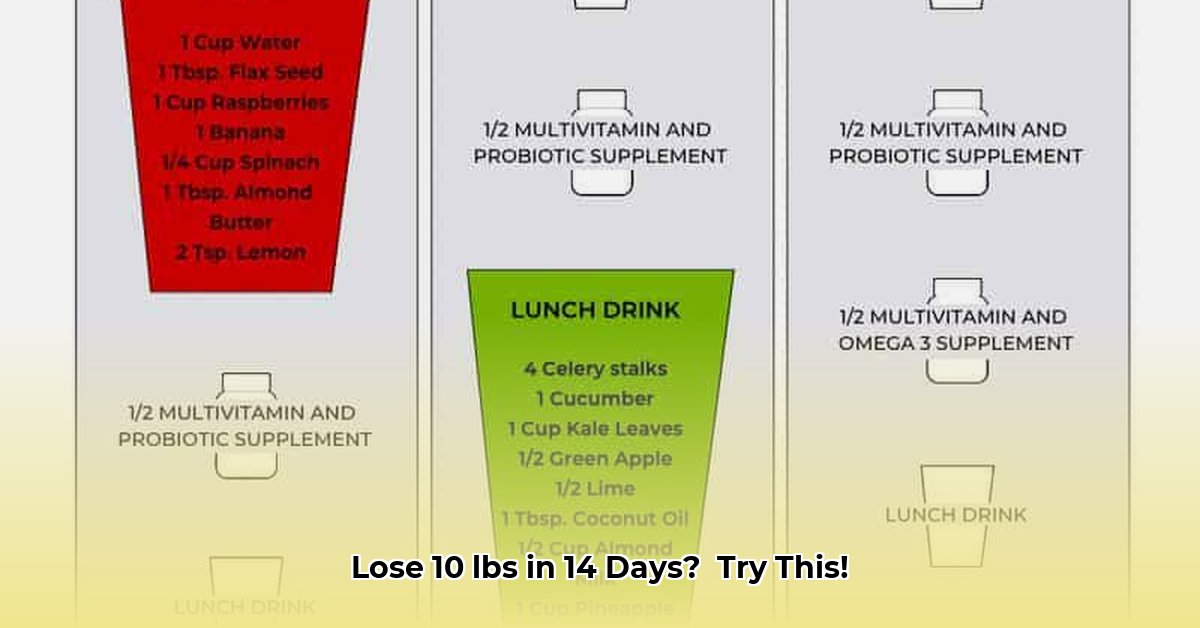
Understanding 14-Day Detox and Clean Eating Plans
The quest for rapid weight loss often leads individuals to explore various methods, with 14-day detox and clean eating plans gaining significant popularity. However, understanding the nuances of each approach is crucial to making informed decisions regarding your health and well-being. This article compares these two approaches, highlighting their similarities, differences, and potential risks to guide you toward a sustainable path to weight management.
What is a 14-Day Detox Plan?
Many 14-day detox plans promote the idea of rapidly removing toxins from the body through restrictive diets, often emphasizing fruits, vegetables, and increased water intake. Proponents suggest potential benefits such as increased energy levels and improved skin complexion. However, it's crucial to note that the scientific evidence supporting these claims is limited. The human body possesses natural detoxification mechanisms (liver and kidneys), and drastic dietary restrictions may not provide significant additional benefits and may lead to nutritional deficiencies. Therefore, approaching detox plans with realistic expectations is essential. Don't expect miraculous results.
What is a 14-Day Clean-Eating Plan?
A 14-day clean-eating plan focuses on consuming whole, unprocessed foods while minimizing processed foods, added sugars, and refined carbohydrates. The primary goal is often weight loss through calorie control and increased nutrient density, focusing on a balanced intake of macronutrients (proteins, carbohydrates, and fats). While clean eating promotes overall health, rapid weight loss isn't guaranteed. Individual results vary significantly. It is important to always consult with a healthcare professional before undertaking a restrictive diet.
Detox vs. Clean Eating: A Comparative Analysis
The following table highlights the key differences between 14-day detox and clean-eating plans:
| Feature | 14-Day Detox Plan | 14-Day Clean-Eating Plan (Example: 1200 Calories) |
|---|---|---|
| Main Goal | Improve general well-being; support body's natural processes | Weight loss through calorie control and nutrient-dense foods |
| Calorie Intake | Variable, often higher | Controlled, e.g., 1200 calories (adjust based on individual needs) |
| Nutrient Balance | Less precise, potential for deficiencies | More precise, with defined macronutrient targets |
| Scientific Backing | Limited scientific evidence | Based on established principles of nutrition |
| Food Emphasis | Fruits, vegetables, lean proteins; often includes specific foods promoted as detoxification aids | Primarily whole, unprocessed foods; avoids processed foods |
Potential Risks and Considerations
Both detox and clean-eating plans carry potential risks. Restrictive diets can lead to nutrient deficiencies and muscle loss. Rapid weight loss, while initially appealing, may not be sustainable and can be detrimental to long-term health. Furthermore, some detox plans may promote potentially harmful practices. Always consult a doctor or registered dietitian before starting any weight loss program, especially if you have underlying health conditions.
Actionable Advice: Sustainable Healthy Eating
Sustainable healthy habits are paramount for long-term well-being. Focus on incorporating a balanced diet rich in fruits, vegetables, lean proteins, and whole grains. Avoid fad diets promising quick fixes. Gradual, manageable lifestyle changes are more likely to yield lasting results. Both detox and clean eating can be part of a broader healthy lifestyle, but only if approached mindfully and with professional guidance.
Incorporating Detox Principles into a Clean Eating Plan
While the term "detox" often lacks scientific rigor, the underlying principles can be incorporated safely into a clean-eating approach. Focusing on hydration, fiber-rich foods, and nutrient-dense options aligns with sound nutritional practices. Remember, your body's natural detoxification systems are highly effective.
Key Takeaways:
- Prioritize nutrient-rich whole foods.
- Hydration is crucial for overall health.
- Fiber promotes healthy digestion.
- Consult with health professionals for personalized guidance.
- Prioritize long-term sustainability over quick fixes.
Remember to consult your physician or a registered dietitian before making significant dietary changes. They can help you create a safe and effective plan tailored to your specific needs and health conditions.